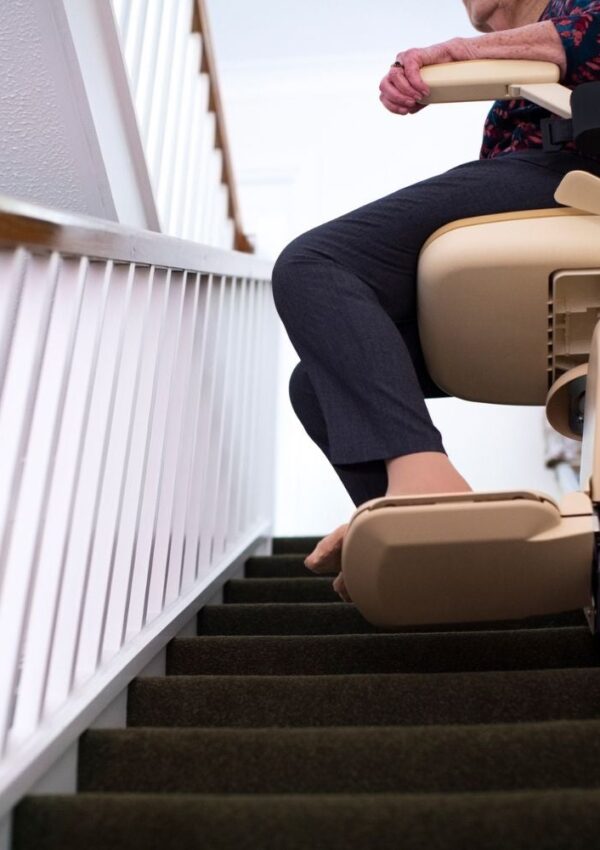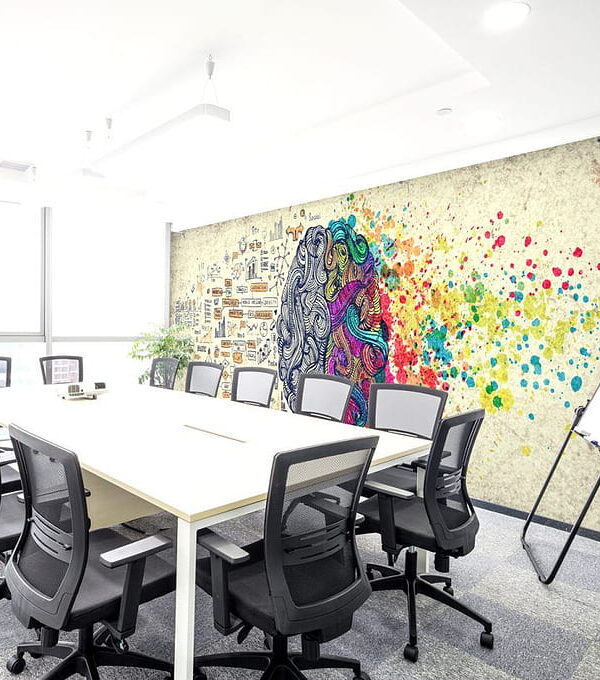Did you know that according to recent studies, homes and businesses with security camera systems are 300% less likely to be targeted by burglars? When it comes to protecting your space, investing in a comprehensive security camera system is a smart choice.
But with so many options available, where do you even begin? In this guide, we will walk you through the basics of security camera systems, help you choose the right one for your needs, provide tips on installation, and explore additional features and considerations to maximize the benefits.
So, if you’re ready to take control of your security, let’s get started.
Understanding the Basics
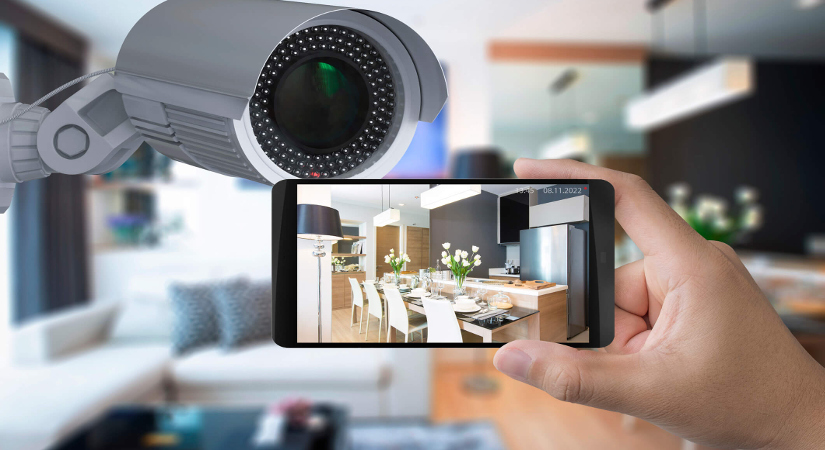
To truly understand the basics of home security systems, it’s essential to familiarize yourself with their key components and their functions.
One of the most crucial aspects of security camera systems is the camera itself. Camera technologies have evolved significantly over the years, offering a wide range of options to suit different security needs.
There are several types of security cameras available in the market today. The most common ones include dome cameras, bullet cameras, and PTZ (Pan-Tilt-Zoom) cameras. Dome cameras are named for their dome-shaped design, which allows for discreet surveillance. They’re commonly used indoors and can be ceiling or wall-mounted.
Bullet cameras, on the other hand, are shaped like cylinders and are often used for outdoor surveillance. They’re easy to install and provide a clear view of a specific area.
PTZ cameras, as the name suggests, can pan, tilt, and zoom to focus on specific objects or areas. These cameras are highly versatile and can cover a large area with a single unit.
Each type of security camera has its own set of advantages and disadvantages, so it’s important to choose one that best suits your security requirements. By understanding the different camera technologies and types available, you can make an informed decision when it comes to securing your space.
Choosing the Right Camera System
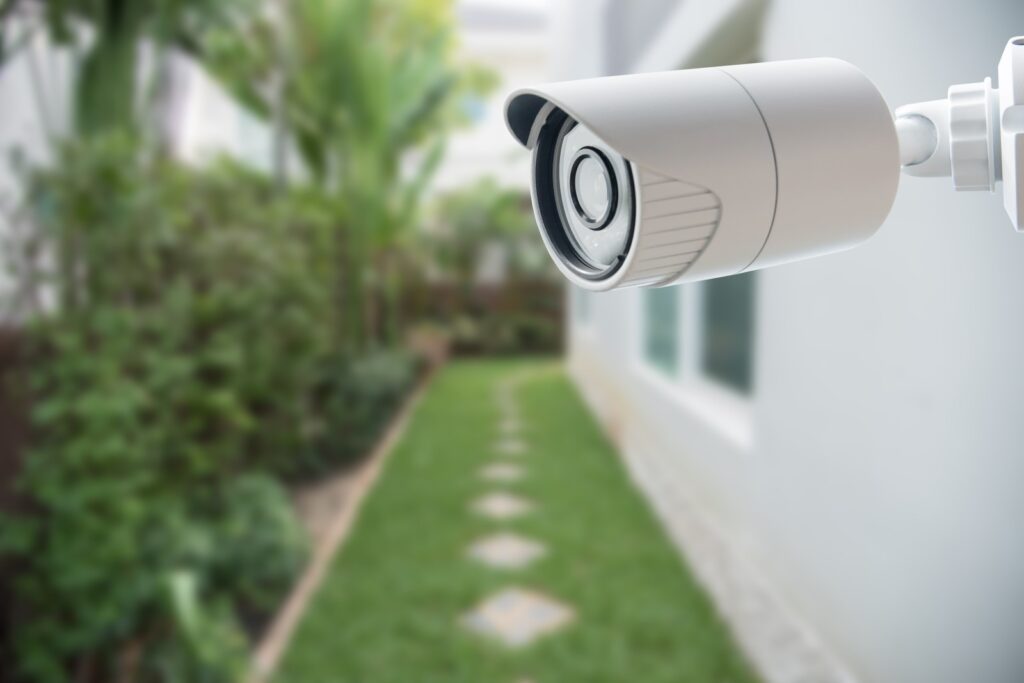
Now that you have a good understanding of the basics of security camera systems and the different types of cameras available, it’s time to discuss how to choose the right camera system for your specific security needs.
One of the most important factors to consider when choosing a camera system is the camera resolution. The resolution determines the level of detail that the camera can capture. Higher-resolution cameras produce clearer and more detailed images, which can be crucial for identifying faces or objects in the footage. It’s recommended to choose a camera with at least 1080p resolution for optimal results.
Another crucial feature to consider is the night vision capabilities of the camera system. Night vision allows the camera to capture clear footage even in low light or complete darkness. This is especially important if you need to monitor your premises during nighttime or in poorly lit areas. Look for cameras with infrared LEDs, as they emit a light that’s invisible to the human eye but can illuminate the surroundings for the camera.
In addition to camera resolution and night vision capabilities, there are other factors to consider such as the camera’s field of view, weather resistance, and connectivity options. It’s also important to evaluate the compatibility of the camera system with any existing security infrastructure you may have.
Installing Your Security Cameras
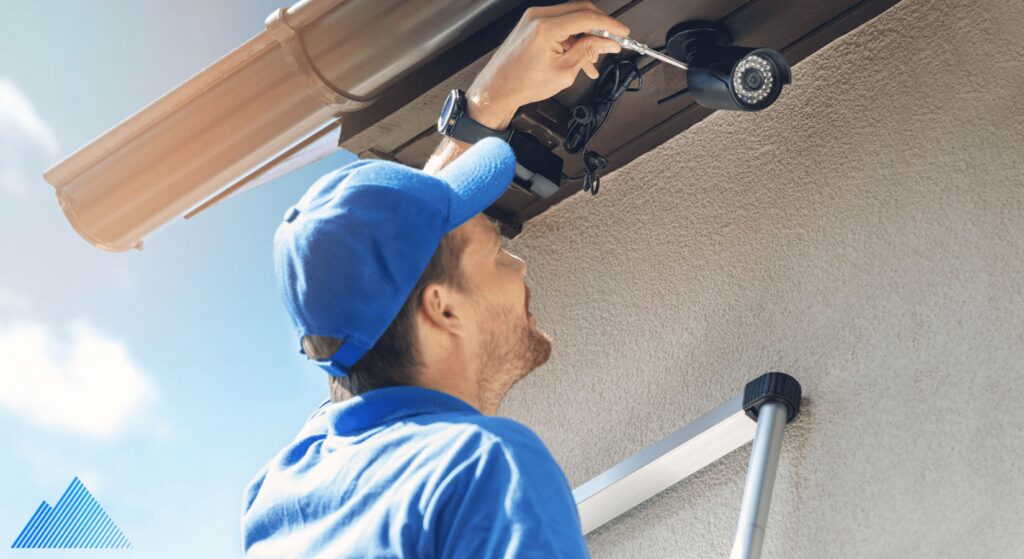
You can begin the installation process of your security cameras by carefully selecting the optimal locations for placement. Proper positioning is crucial to ensure maximum coverage and effectiveness of your security system. When determining the placement of your cameras, consider the areas you want to monitor and the potential blind spots.
It’s important to position the cameras at a height that provides a clear view of the intended area while also being out of reach from potential tampering or damage. Additionally, make sure to mount the cameras securely to prevent them from being easily dislodged or stolen.
Once you have chosen the ideal locations, it’s time to troubleshoot any potential issues that may arise during the installation process. One common problem is poor image quality, which can be caused by incorrect camera settings or improper positioning. To fix this, adjust the camera’s focus, exposure, and resolution settings.
Another issue that may occur is inadequate power supply, resulting in cameras not working or recording properly. Ensure that the power cables are securely connected and that the power source is sufficient for all cameras.
Maximizing the Benefits of Security Cameras
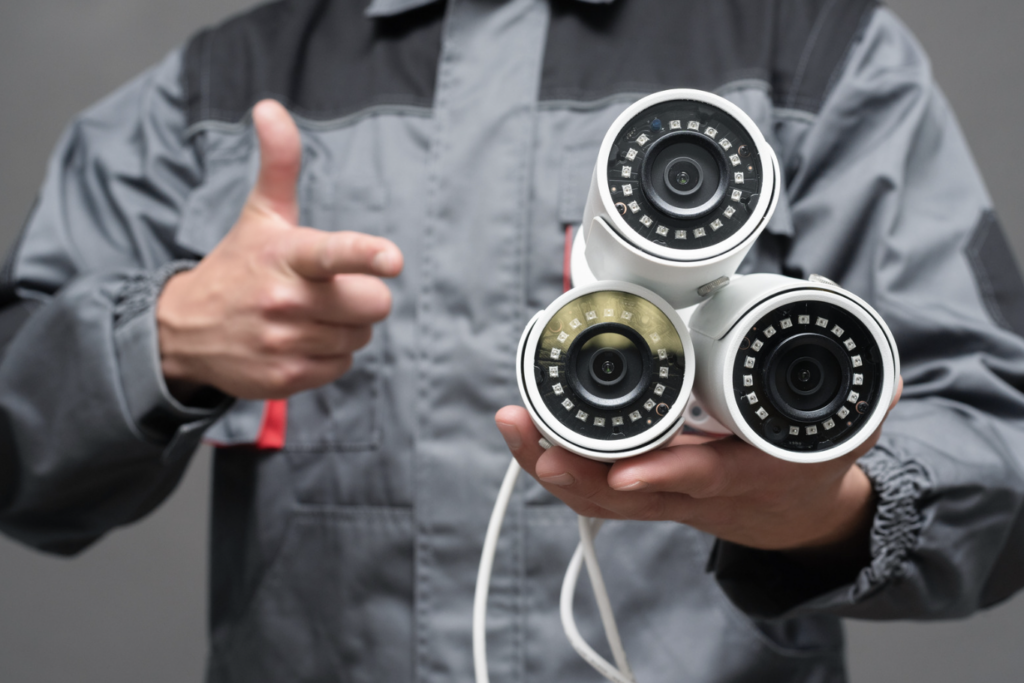
Once your security cameras have been installed and positioned correctly, it’s essential to understand how to maximize the benefits they offer. One important aspect to consider is privacy concerns. While security cameras can provide valuable surveillance, it’s crucial to respect the privacy of individuals within the monitored area.
To address this, it’s recommended to clearly communicate the presence of security cameras through visible signage. This can help deter potential intruders while also informing individuals that their actions may be recorded. Additionally, it’s essential to comply with local laws and regulations regarding the use of security cameras and the protection of privacy.
Another way to maximize the benefits of security cameras is through remote monitoring. By connecting your security cameras to a network, you can access the live feed from anywhere using a smartphone, tablet, or computer.
This allows you to keep an eye on your property even when you’re away, providing peace of mind and the ability to respond quickly to any suspicious activity. Remote monitoring also enables you to review footage in real-time or access recorded footage for later use, such as providing evidence to law enforcement if needed.
Additional Features and Considerations
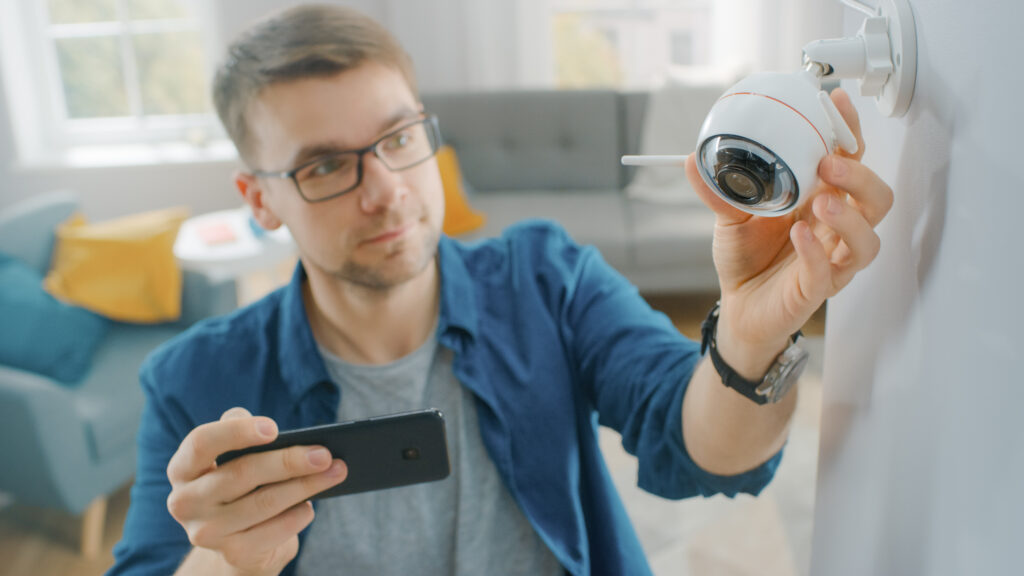
Consider the various additional features and factors that can enhance the effectiveness of your security camera system. One such feature is advanced analytics, which allows you to go beyond basic video surveillance and gain valuable insights from your camera footage.
With advanced analytics, your security cameras can detect and alert you to specific events or behaviors, such as motion detection, facial recognition, or object tracking. This can help you identify potential threats or suspicious activities in real time, allowing for a quicker response.
Another important consideration is remote monitoring. With remote monitoring capabilities, you can access your security camera system from anywhere, at any time, using a smartphone, tablet, or computer.
This allows you to keep an eye on your property even when you aren’t physically present. Additionally, remote monitoring allows you to receive alerts and notifications when specific events occur, so you can take immediate action if necessary.
When choosing a security camera system, it’s important to consider the specific needs of your space and the level of security you require. Advanced analytics and remote monitoring are just a few of the additional features and considerations that can enhance the effectiveness of your security camera system. By carefully evaluating these factors, you can ensure that your security camera system provides the necessary protection for your space.
Frequently Asked Questions
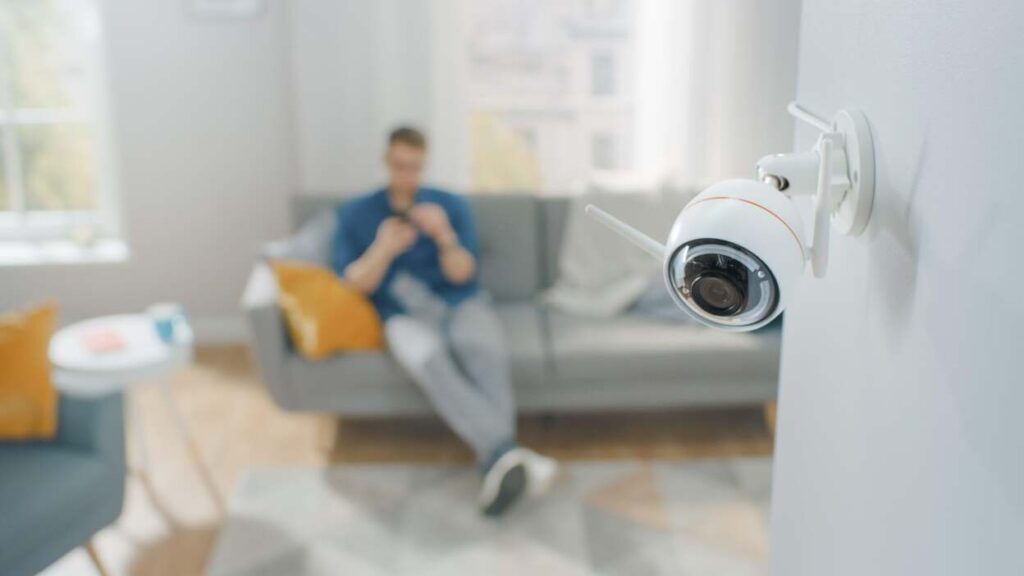
Are Security Camera Systems Effective in Deterring Criminals?
Are security camera systems effective in deterring criminals? Absolutely! With constant surveillance, criminals are less likely to target your space. While privacy concerns exist, the cost-effectiveness and peace of mind make security camera systems worth the investment.
How Often Should I Perform Maintenance on My Security Camera System?
You should perform regular maintenance on your security camera system to ensure optimal performance. Check for any loose connections, clean the lenses, and test the recording capabilities. Troubleshooting tips can help identify and resolve any issues that may arise.
Can I Access My Security Camera Footage Remotely?
You can conveniently access your security camera footage remotely with mobile viewing. This feature allows you to monitor your space from anywhere, enhancing the security and peace of mind for your property.
What Are the Legal Considerations When Installing Security Cameras?
When installing security cameras, it is important to consider the legal implications. Privacy concerns should be addressed, ensuring compliance with local laws and regulations to protect the rights of individuals.
How Can I Optimize the Video Quality of My Security Camera System?
To optimize the video quality of your security camera system, start by adjusting the camera settings for improving resolution. Additionally, ensure proper lighting conditions and clean the lenses regularly to enhance image clarity.

